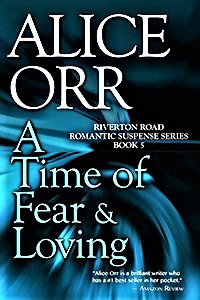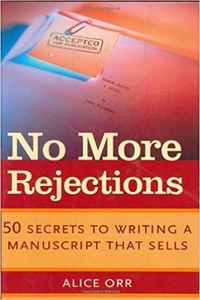Time to buff up your Writer Imagination Muscles
An editor and author provides advice on th eessential storytelling question.
Would you feel better or worse if I told you I get rejections?
In my pre-indie days, I
traditionally published several romantic suspense novels
and a nonfiction book. One night back then, I had a dream so vivid I woke up trembling,
short of breath and convinced the goddess had sent me a bestseller for sure.
I'd actually experienced An Idea That Wasn't A Story.
Too bad I didn't recognize this. To my credit, I honed that nightmare scene till
the impact was razor sharp. Too bad I didn't have much to go with it. I figured
my boffo opener would carry the rest. My agent disagreed, and pointed out that,
after the boffo had passed, pacing lost steam, story urgency waned, my heroine lacked
a compelling voice. I'd built up expectations with my opener, then squandered them.
I'd leapfrogged over the essential storytelling question.
"What am I going to write about?" as filmmaker David Lynch, author and
director of some of the most imaginative screen scenarios ever, says. "Ideas
dictate everything. You have to be true to that or you're dead."
Yet, there's always pressure to write what will sell.
I'd been piling that pressure on myself when I conceived my boffo opening with no
follow-through. I was writing pyrotechnics I thought might turn my agent on, instead
of seeking the true conflicted heart of my story and letting my imagination lead
me onward from that place.
I call it the Idea from Heaven. The idea that makes the
heart of a story pound. I could have taken my nightmare inspiration, then coaxed
depth and richness from it to create an Idea from Heaven. I forgot I possessed the
power to accomplish that. What, specifically, should I have remembered to do?
Imagine that the imagination is a muscle. To make and
keep the imaginative muscle equal to the rigors of storytelling, we must give it
a daily workout. If I'd gone from terrifying dream to imagination exercise mat,
instead of straight into writing, the results would have been very different. Here's
the five-step exercise I should have done. You should do it too.
Step 1. Find your most fertile imagination time. For me,
that's morning, immediately after waking, close to the state that produced my terrifying
dream. Pen and pad are ready. I believe imagination, and writing voice, are best
accessed in longhand. BTW I used to think night was my most imaginative time, but
found that being tired encouraged me to natter on way too much.
Step 2. Find the idea recording method that works best for
you. Notebook, cards, a voice recording device, which works well for many verbal people. Try different possibilities.
Step 3. Pose yourself a question. "Where does the
story go from here?" Or, "What does my main character do next?" Fashion
your most pressing question, take your time, but don't obsess over it. Trust your
writerly instinct to know what your story needs. Use a current writing project as
subject ground. If you don't have a current writing project, get one.
Step 4. Come up with answers to the question you've posed.
Never settle for the first idea that comes. Keep thinking. Push yourself to the
more original response, the less expected reaction. Burrow deeper into the situation
and the characters. Encourage your mind to run wild.
Step 5. Record each idea as it comes. Limit the exercise
to 10 or 15 minutes. Don't censor your responses in any way, like "That's too
outlandish," or "This won't work." Record everything, without critique
or evaluation. Time limit ends. Put down your pen or turn off the recorder.
The Crucial Cool Down. Sit for a moment and take note
of how you feel. Maybe stimulated, full of mental energy, ready to spin off still
more ideas in a cannonade of creativity. The imagination muscle has had a good workout
for sure. Do this every day. You'll find yourself being more creative than ever
before, and enjoying it too.
I robbed myself of that enjoyment when I neglected to take time
for this exercise as preparation for developing my story idea. My flabby imagination
muscle failed me because I failed it. Learn from my negative example. Take power
over your own creative laziness, and give your story idea the strength it needs
to succeed.
About Alice Orr
Alice Orr is author of 16 novels, 3 novellas, a memoir and No
More Rejections: 50 Secrets to Writing a Manuscript that Sells. Hero in the Mirror:
How to Write Your Best Story of You is in progress. A former book editor and literary
agent, Alice now writes full-time. Her latest novel is A Time of Fear and Loving
– Riverton Road Romantic Suspense Series Book 5. Find all of Alice Orr's books on
Amazon. Alice has two
grown children and two perfect grandchildren and lives with her beloved husband
Jonathan in New York City.



